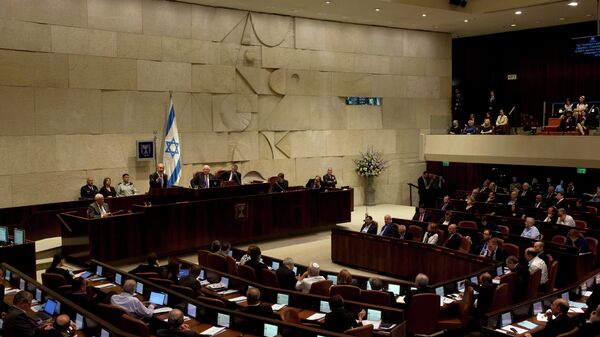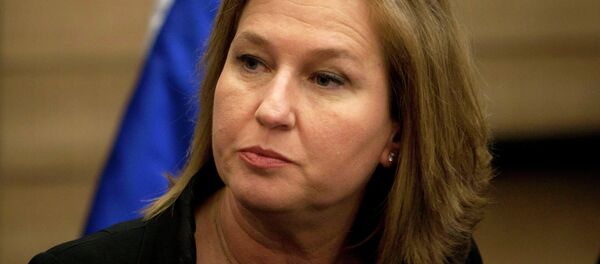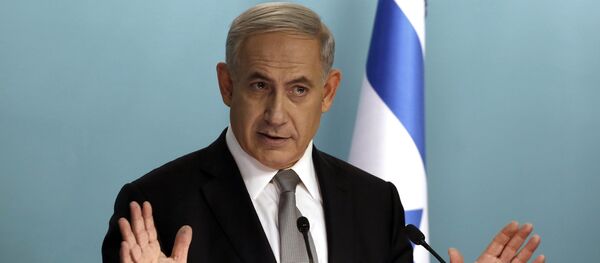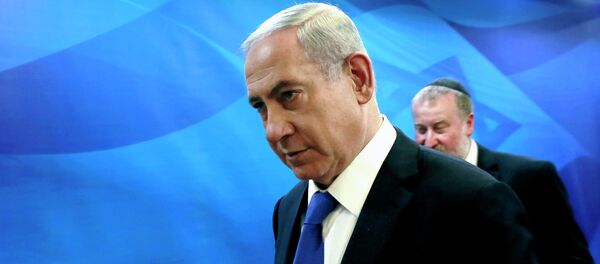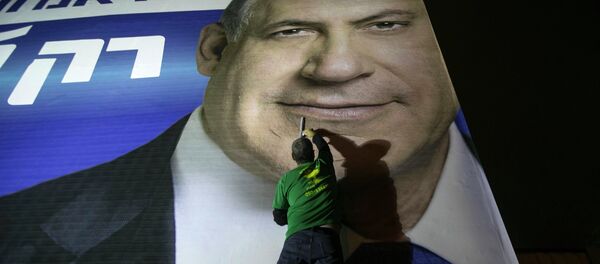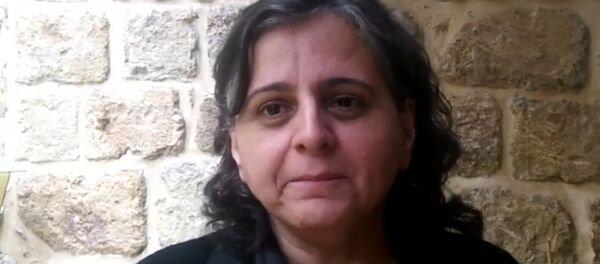It is decision time for Israel, as the country goes to national election for the Knesset on Tuesday.
The outcome of this election will determine the direction that Israel will take on the issues with Iran, Palestinians and their relationship with the United States. Sputnik compiled a list of the main political parties striving for seats in Israel’s Knesset.
Zionist Union
The Zionist Union is a center-left political alliance, established in December 2014 following the merge of Isaac Herzog’s Israeli Labor Party and the Hantuah party of Tzipi Livni, a former Israeli foreign minister and former minister of justice.
In terms of their foreign policy, the Zionist Union wants to restore warm ties with the United States, with whom relations have become strained over the issue of Iran’s nuclear program.
According to the latest poll conducted by Haaretz, the Zionist Union is expected to win 25 seats in the Knesset, a four seat lead over the Likud party of Benjamin Netanyahu.
Likud
The right-wing party of current Prime Minister Benjamin Netanyahu has been in power since 2009.
Under the government of Netanyahu, Israel’s relations with the United States, its most important ally, have been tense due to policy differences over Iran’s nuclear program, the stalled negotiations with the Palestinians and Netanyahu’s bad personal chemistry with US President Barack Obama.
Polls show that Likud is expected to win 21 seats at best, losing at least four seats to the Zionist Union. Netanyahu could lose the election, as he seems to have fallen out of favor in Israel. The popular mood among Israelis was described as a “Bibi-fatigue”, who are more concerned about the economy and housing cost rather than Netanyahu’s fear-mongering about Iran.
Joint List (Hadash and Arab Parties)
The Joint List is the newly united bloc of Israel’s Arab parties. In the past, Israel’s Arab parties were divided by their political differences – right or left, secularism or Islamist – thus, breaking the Arab vote. Now, by putting aside their differences and campaigning as the united Arab party, the Joint List may become a force to be reckoned with, especially considering that around 20 percent of Israeli eligible voters are Palestinians.
Furthermore, the party calls for the release of political prisoners and wants the right of return for all Palestinian refugees based on UN Resolution 194.
Polls predict that the Joint List will gather 13 seats in the Knesset. If the forecasts turn out to be correct, the Joint List will become the third-largest party in the Knesset.
